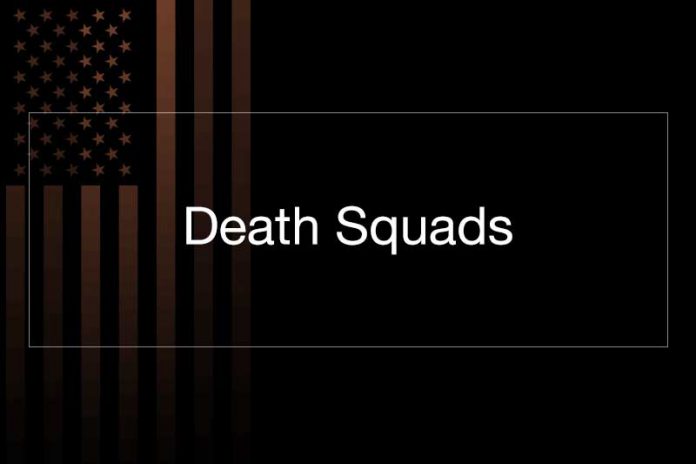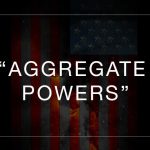Last Updated on October 3, 2021 by Constitutional Militia
Recently, one of the General Government’s District Court Judges dismissed a lawsuit that challenged the purported authority of the President to order the assassination overseas of American citizens whom someone in the Executive Branch has categorized as a dangerous “terrorist”. The Judge ruled that the plaintiff, being only the father of the threatened victim, rather than the victim himself, lacked “standing” to prosecute the suit, and that in any event the issue involved a “political question” that could not be adjudicated in court. So the underlying claim was not decided, one way or the other.
The judicial dodge of denying “standing” to people who raise contentions that are extremely embarrassing to rogue officials in the General Government has become all-too-familiar these days—particularly in lawsuits and other proceedings that raise challenges to the qualifications of Barak Obama for the office of President. But in this case, not merely usurpation, but nothing less than murder is the ultimate issue. Which, one might have imagined, should have given even the most legally dim-witted and morally obtuse judge serious cause for concern that perhaps the matter was not just a “political question”.
Rather than analyzing the some eighty-three pages of this particular Judge’s opinion, though, I shall simply lay out some of the principles on which any honest and competent jurist would not only find “standing” in a case such as this, but also declare the claims of the Executive Branch to be unconstitutional.
1. The basic assertion from the Executive Branch is that the President, in his capacity as “Commander in Chief” during “the war on terror”, enjoys the inherent power, by himself or through his subordinates, to identify certain American citizens as extremely dangerous “terrorists”, and on the basis of that determination to order operatives of the General Government to assassinate those Americans wherever they may be found in foreign venues. Furthermore, the exercise of this purported power: (i) is not dependent upon any prior judicial determination that an individual targeted for execution is guilty of any crime punishable by death, or that the individual could not be apprehended and made to stand trial in some court; and (ii) is not subject to any other kind of judicial review, either before or after the execution takes place. Indeed, because many of the supposed facts on which a determination of an individual’s status as a “terrorist” certainly will be claimed to be “state secrets”, meaningful judicial review either ex ante or ex post would routinely be impossible as a matter of practice. In addition, inasmuch as the Constitution does not limit the exercise of the powers of the “Commander in Chief” (whatever they may be) to foreign venues only, no reason can be found why the supposed authority to execute certain Americans outside of any judicial process, if it does exist at all, cannot be exercised within the United States proper, even on the lawn of the White House itself. After all, if an American “terrorist” who might be apprehended in Afghanistan may nonetheless simply be assassinated there, because some bureaucrat in the Executive Branch considers the latter course of action more efficient than the former, then why should not an American “terrorist” operating within the United States also simply be executed out of hand, for the same eminently practical reason? So, in its fullest statement, the President’s contention is that he enjoys judicially unreviewable discretion—acting either by his own hand or by the hands of his minions—to assassinate, anywhere in the world and presumably by whatever means may prove effective, any American citizen whom someone in the Executive Branch, whose identity may never be disclosed, has identified as a dangerous “terrorist” by some process and on the basis of some purported evidence that in its most important particulars may forever remain secret.
2. This stark statement of the issue settles the question of “standing”. For, on this statement, any American—and certainly every American who, for whatever reason, may run politically afoul of the Executive Branch or of some subversive private organization with malign influence over the Executive Branch—is potentially the victim of an “official” assassination, the real reason for which can easily be disguised behind some fictional, or perhaps merely erroneous, assertion that the victim is a “terrorist”. Because the process and criteria for selection of an individual for “official” assassination are largely secret, one cannot predict who these victims will be, until they are killed and someone from the Executive Branch admits to complicity in the deed. But, self-evidently, once a victim has been executed, an injury irreparable by judicial process will have occurred. So, if the courts are to enforce the constitutional mandate of the Fifth Amendment that “[n]o person shall * * * be deprived of life * * * without due process of law”—with proper emphasis on the word “[n]o”—then they must entertain at least one suit by one American to determine the legality of the power the President claims, before that individual—or anyone else—is actually assassinated. Which means that the very first lawsuit meeting the standard requirements for personal jurisdiction and venue should be heard on the merits. (Of course, this would not guarantee that the issue would be decided correctly, the Bench being overrun by one Judge Flapdoodle after another in every jurisdiction throughout the federal system. But at least it would move the process of inquiry ahead under public scrutiny.)
Prudential considerations compel the same result. The doctrine of “standing” is mostly the bastard contrivance of individual judges, in the formulation and application of which the personality on the Bench rather than any fixed and certain legal principle usually decides the outcome. As such, the doctrine of “standing” is wholly nonscientific—being both unverifiable and unfalsifiable. Yet, in this case, that is no demerit. Rather, it is an advantage. Because, here, a clever judicial wordsmith could easily concoct out of bits and snippets extracted from hundreds of other judicial opinions his own decision in favor of “standing”. And although other jurists and lawyers might disagree with his conclusion, who could declare him to be wrong in any objective sense? No one. He would, as well, be quite right morally. Because, having found “standing”, he could at least temporarily enjoin the continuation of the program of “official” assassinations, until the Judiciary could pass on the question after plenary consideration, thereby preventing who could predict how many irretrievable violations of the Fifth Amendment. Eventually, higher courts might overrule him, licensing the assassins to proceed. But then the blood would encarnadine those judges’ hands, not his.
If they were honest in their claim of constitutional authority, the President and his agents in the General Government, too, would themselves encourage this result, so as to find out exactly where they stand legally. For if “official” assassinations committed anywhere within the United States are unconstitutional, then both the assassins and their principals are criminals for whose transgressions the penalty may be death. For just one example, Title 18 of the United States Code provides as follows:
§ 241. Conspiracy against rights.
If two or more persons conspire to injure, oppress, threaten, or intimidate any person in any State, Territory, Commonwealth, Possession, or District in the free exercise or enjoyment of any right or privilege secured to him by the Constitution or laws of the United States, or because of his having so exercised the same; or
If two or more persons go in disguise on the highway, or on the premises of another, with intent to prevent or hinder his free exercise or enjoyment of any right or privilege so secured—
They shall be fined under this title or imprisoned not more than ten years, or both; and if death results from the acts committed in violation of this section or if such acts include kidnapping or an attempt to kidnap, * * * or an attempt to kill, they shall be fined under this title or imprisoned for any term of years or for life, or both, or may be sentenced to death.
§ 242. Deprivation of rights under color of law. Whoever, under color of any law, statute, ordinance, regulation, or custom, willfully subjects any person in any State, Territory, Commonwealth, Possession, or District to the deprivation of any rights, privileges, or immunities secured or protected by the Constitution or laws of the United States, * * * shall be fined under this title or imprisoned not more than one year, or both; and if bodily injury results from the acts committed in violation of this section or if such acts include the use, attempted use, or threatened use of a dangerous weapon, explosives, or fire, shall be fined under this title or imprisoned not more than ten years, or both; and if death results from the acts committed in violation of this section or if such acts include kidnapping or an attempt to kidnap, * * * or an attempt to kill, shall be fined under this title, or imprisoned for any term of years or for life, or both, or may be sentenced to death.
Moreover, the victims of attempted unconstitutional “official” assassinations would, in the exercise of their natural right of self-defense, be entitled to resist their assailants with deadly force. Which means that, in an environment in which any agent of the General Government might secretly be engaged in an “official” assassination on American soil, against which the Judiciary refused to protect the citizenry, any American—and certainly any political dissident—could reasonably and justifiably resist any government agent with deadly force at any time, because the victim would have no way of knowing whether that particular agent’s assault was actually a “hit” disguised as some kind of supposedly valid “law enforcement”. Too many contemporary Americans may be sheep willing to be shorn; but it is unlikely that more than a few of them are sheep willing to be slaughtered after they finally realize that such is the shepherd’s intention, and are exposed to some examples of his bloody handiwork. And having publicly espoused the position that they may with impunity kill any American for secret (and judicially unreviewable) reasons at any time, agents of the General Government could hardly complain if every American took them at their word, and defended himself accordingly.
Obviously, to allow a situation of this kind to degenerate into widespread violence would verge on madness. So, any judge’s invocation of the “standing” ruse to derail timely litigation of this issue is more than merely intellectually indefensible and morally irresponsible. Unless the judge can successfully invoke the defense of insanity on his own behalf, his misuse of the “standing” doctrine amounts as well to his complicity in—and at least equal culpability for—whatever crimes may be perpetrated in the course of any attempted “official assassinations. For part two click below.




































